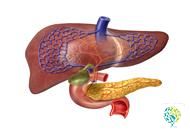Simply relying on a glutamyl transaminase level of 245 cannot directly determine the severity of a condition. Comprehensive evaluation must be conducted based on clinical symptoms and the nature of the lesion. In some cases, a glutamyl transaminase level of 245 may not be severe, such as in cases of cholecystitis or cholangitis, which can be treated and recovered. However, in cases of hepatitis B, liver cirrhosis, or cholangiocarcinoma, a glutamyl transaminase level of 245 may be more severe.

1. Alanine aminotransferase (ALT) is found in the liver, heart, and skeletal muscles. If liver cells or certain tissues are damaged or necrotic, it can lead to an increase in ALT levels. Long-term alcohol consumption can cause fatty liver, liver damage, and decreased liver function, resulting in a significant increase in glutamyl transaminase levels.
2. Excessive intake of high-protein foods, the use of sedatives, analgesics, or prolonged overwork and stress can all lead to elevated glutamyl aminotransferase levels. In cases of liver cancer, cancer cells can synthesize glutamyl transaminase, also leading to elevated glutamyl transaminase levels.
3. When glutamyl transaminase levels are elevated, it is important to quit smoking and alcohol consumption to reduce damage to liver cells. It is also necessary to undergo relevant examinations at the hospital to identify the underlying cause and undergo liver protection and targeted treatment. Dietary considerations include avoiding overly greasy foods and opting for a light diet.

